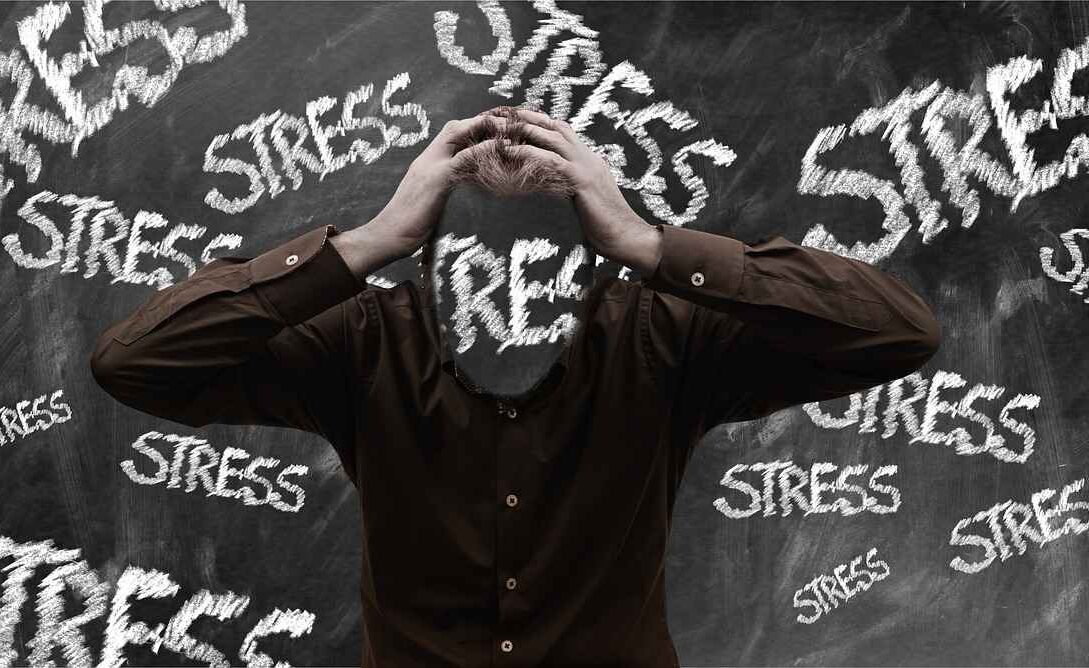How to manage stress and improve overall well-being is a question that many people ponder about. In our fast-paced lives, stress has emerged as an unwelcome companion, often disrupting our sense of balance and harmony. The connection between managing stress and overall well-being is profound, influencing every aspect of our lives. Picture stress as a challenging crossroad and well-being as the destination we all strive for. Effectively managing stress equips us with the tools to navigate this crossroad, leading to a life imbued with improved mental, emotional, and physical wellness.
This journey into the realm of stress management unveils the strategies that empower us to not only confront the pressures of life but also to elevate our experiences. By understanding the intricacies of stress and its effects, we can go on a transformative path toward a more resilient and fulfilling life. Join us as we explore the synergy between stress management and overall well-being, discovering the potential for growth and contentment that lies ahead.
What is Stress?
Stress, in its various forms, is an inherent part of the human experience. It’s that undeniable surge of tension we feel when faced with challenges, uncertainties, or demands. At its core, stress is the body’s natural response to external or internal pressures, triggering a cascade of physiological and psychological reactions. To comprehend the significance of stress management, we must first discern its different types.
Acute Stress: This is the short-term variety that arises from immediate stressors, like a tight deadline or a sudden problem. It’s the kind of stress that provides a burst of energy, known as the “fight or flight” response, which can actually be beneficial in some situations.
Chronic Stress: This is the prolonged version of stress, often stemming from ongoing issues such as financial worries, relationship difficulties, or a demanding job. Unlike acute stress, chronic stress can lead to a constant state of tension that takes a toll on both mental and physical well-being.

Effects of Prolonged Stress on Health
While stress can serve as a motivating force in the short term, its persistence can have detrimental effects on our health and quality of life. Prolonged exposure to stress has been linked to a range of physical and mental health issues, including:
- Cardiovascular Problems: Chronic stress can contribute to high blood pressure, heart disease, and an increased risk of stroke due to elevated levels of stress hormones like cortisol.
- Immune Suppression: Stress weakens the immune system’s ability to fend off infections and illnesses, leaving us more vulnerable to diseases.
- Mental Health Challenges: Prolonged stress is a significant factor in the development of anxiety disorders, depression, and other mental health conditions.
- Digestive Disruptions: Stress can disrupt digestion, leading to issues like irritable bowel syndrome (IBS) and other gastrointestinal problems.
- Sleep Disturbances: Persistent stress often results in sleep difficulties, which can further exacerbate stress and create a harmful cycle.
Healthy Strategies to Manage Stress
# Mindfulness and Meditation
In the midst of life’s whirlwind, finding moments of tranquility can seem like an elusive quest. This is where mindfulness and meditation step in as invaluable allies, offering a sanctuary of calm amidst the storm. These ancient practices not only help manage stress but also nurture a profound connection between mind, body, and spirit.
Benefits of Mindfulness
Mindfulness involves paying purposeful attention to the present moment without judgment. Its benefits extend beyond stress reduction, permeating all aspects of our well-being:
Stress Reduction: Mindfulness cultivates a heightened awareness of our reactions to stressors, enabling us to respond rather than react impulsively.
Enhanced Focus: Regular mindfulness practice sharpens concentration and cognitive function, allowing us to tackle challenges with greater clarity.
Emotional Regulation: By observing our emotions nonjudgmentally, mindfulness fosters emotional resilience and the ability to navigate intense feelings.
Improved Relationships: Mindfulness encourages empathetic listening and genuine presence, enriching our interactions with others.
How to Practice Meditation
Meditation is a powerful vehicle to embark on the journey of mindfulness. To get started:
Find a Quiet Space: Choose a peaceful environment where you can sit or lie down comfortably.
Focus on Breath: Close your eyes and gently direct your attention to your breath. Feel the sensation of each inhale and exhale.
Nonjudgmental Observation: As thoughts arise, acknowledge them without judgment and gently guide your focus back to your breath.
Start Short: Begin with just a few minutes each day and gradually extend the duration as your practice deepens.
Guided Meditation: Utilize guided meditation apps or recordings to help you ease into the practice.
# Physical Activity
In the modern world, where stress often seems like an inevitable companion, the remedy might be closer than you think—physical activity. Engaging in regular exercise not only has the power to boost your physical fitness but also serves as a potent stress-busting tool that uplifts your mood and enhances your overall well-being.
When stress takes hold, physical activity becomes a beacon of relief. Here’s how exercise works its magic on stress reduction:
Stress Hormone Regulation: Physical activity prompts the release of endorphins—nature’s “feel-good” chemicals—that counteract stress hormones like cortisol.
Mood Enhancement: Exercise contributes to a positive mood by triggering the production of neurotransmitters like serotonin, known for its mood-stabilizing effects.
Cognitive Respite: Engaging in physical activity shifts your focus away from stressors, offering a mental break that can lead to clearer thinking and problem-solving.
Improved Sleep: Regular exercise promotes better sleep, and a well-rested mind is better equipped to handle stressors.

Different Forms of Physical Activity
Physical activity comes in various forms, allowing you to tailor your approach to your preferences and lifestyle. Consider these options:
- Aerobic Exercise: Activities like jogging, swimming, or dancing elevate your heart rate, delivering a surge of endorphins and improving cardiovascular health.
- Strength Training: Lifting weights or using resistance bands not only builds physical strength but also enhances confidence and reduces anxiety.
- Yoga and Pilates: These practices combine physical movement with mindfulness, fostering flexibility, balance, and a sense of tranquility.
- Outdoor Activities: Hiking, cycling, or simply walking in nature offer the dual benefit of physical exertion and exposure to natural environments, which can be soothing for the mind.
- Mindful Movement: Practices like tai chi and qigong blend slow, intentional movements with deep breathing, promoting relaxation and mental clarity.
# Healthy Lifestyle Choices
As we navigate the labyrinth of stress, the choices we make in our day-to-day lives can either amplify or alleviate its effects. Embracing a healthy lifestyle is akin to providing your body and mind with the tools they need to thrive amidst the challenges that life presents.
Importance of a Balanced Diet
A balanced diet serves as the cornerstone of overall well-being, providing the essential nutrients, energy, and sustenance required for optimal physical, mental, and emotional functioning. It not only fuels the body’s daily activities but also influences mood regulation, supports gut health, stabilizes blood sugar levels, and fortifies the body’s defenses against oxidative stress. By nourishing our bodies with a diverse array of nutrient-rich foods, we empower ourselves to navigate life’s demands with vitality and resilience, fostering a harmonious connection between nutrition and our capacity to effectively manage stress.
Sufficient Sleep and Its Impact on Stress
Adequate sleep stands as a crucial pillar of stress management, offering more than just rest. It constitutes a vital period of rejuvenation during which the body repairs itself, bolsters cognitive clarity, and fosters emotional resilience. By embracing consistent, quality sleep, we equip ourselves with the cognitive and emotional tools needed to confront stressors with clarity and poise, ensuring that our responses are grounded in a well-rested state, thus enhancing our capacity to maintain equilibrium in the face of life’s challenges.
# Social Connections
In the intricate tapestry of stress management, the threads of social connections weave a resilient fabric that bolsters our well-being. Human beings are inherently social creatures, and the relationships we cultivate play a pivotal role in how we navigate life’s trials and tribulations.
Social support functions as a lifeline in the tumultuous waters of stress, offering a refuge of understanding and empathy. By providing an outlet for emotional expression, offering diverse perspectives on challenges, and fostering a sense of belonging, social connections diminish the isolating effects of stress. These bonds trigger the release of stress-buffering hormones, promoting a harmonious equilibrium that enhances emotional resilience, enabling individuals to confront life’s adversities with greater strength and a shared sense of support.
Ways to Build and Maintain Relationships
Cultivating meaningful relationships is both an art and a science. Here’s how to weave the threads of connection:
Active Listening: Engage in empathetic and attentive listening when conversing with others, showing that you value their thoughts and feelings.
Quality over Quantity: Focus on nurturing a few deep, authentic relationships rather than spreading yourself thin across superficial connections.
Reciprocity: Be willing to offer support as well as seek it, fostering a mutual exchange that strengthens the bonds of trust.
Shared Activities: Engage in activities that resonate with your interests and allow for shared experiences, deepening the connection.
Digital Balance: While technology can facilitate connections, strive for a balance that allows for face-to-face interactions, which often have more profound effects on well-being.
# Time Management
In the symphony of our lives, time is the conductor that guides our actions and decisions. The art of time management is akin to orchestrating this symphony, harmonizing tasks and priorities to create a masterpiece of productivity. Effectively managing time is not merely about squeezing more into each day, but about aligning actions with intentions, creating space for what truly matters, and ultimately reducing the strain of stress.
Effective Techniques for Time Management
Amidst the demands of our fast-paced world, a range of techniques can help refine our mastery over time:
- Prioritization: Distinguish between urgent and important tasks, focusing on those that align with your long-term goals and well-being.
- To-Do Lists: Create lists that outline tasks for the day or week, helping prevent overwhelm and ensuring nothing slips through the cracks.
- Time Blocking: Allocate specific time blocks for tasks, minimizing multitasking and enhancing focus.
- Pomodoro Technique: Break work into intervals (e.g., 25 minutes of focused work followed by a 5-minute break), optimizing productivity and preventing burnout.
- Digital Detox: Designate periods of the day to disconnect from digital distractions, allowing for concentrated work and rejuvenation.
- Delegate and Say No: Learn to delegate tasks and gracefully decline commitments that don’t align with your priorities.
- Reflection and Adjustments: Regularly assess your time management strategies, making adjustments as needed to enhance effectiveness.
# Positive Thinking
Challenge Negative Thoughts
In the labyrinth of our minds, thoughts hold incredible power, shaping our perceptions and influencing our emotional well-being. The practice of positive thinking involves unraveling the knots of negative thoughts and replacing them with affirming beliefs. Challenging these pessimistic mental narratives is the gateway to a more resilient and optimistic mindset, ultimately contributing to better stress management.
Practice Gratitude and Optimism
Cultivating gratitude and optimism is akin to nurturing the seeds of positivity within. Here’s how to nurture this growth:
Gratitude Journaling: Dedicate a few minutes each day to jot down things you’re grateful for, shifting your focus toward the positive aspects of life.
Affirmations: Craft affirming statements that counteract negative beliefs and reinforce your self-worth and potential.
Positive Visualization: Envision your goals and aspirations with a positive outlook, allowing your mind to immerse in the feelings of achievement.
Mindful Presence: Practice being fully present in the moment, appreciating the beauty and blessings around you.
Selective Media Consumption: Choose content that uplifts and inspires, steering clear of negativity that can fuel stress.
Optimistic Interpretation: Reframe challenges as opportunities for growth, training your mind to view setbacks as stepping stones.
# Relaxation Techniques
Deep Breathing Exercises
In the rush of life, our breath often becomes a mere background rhythm. Yet, the way we breathe can profoundly impact our stress levels and overall well-being. Deep breathing exercises serve as a gentle reminder to slow down and reconnect with our breath, offering a sanctuary of calm in the midst of chaos:
- Diaphragmatic Breathing: Inhale deeply through your nose, allowing your abdomen to expand. Exhale slowly through your mouth, feeling the tension melt away.
- 4-7-8 Technique: Inhale for a count of 4, hold for 7, and exhale for 8. This rhythmic pattern triggers the body’s relaxation response.
- Box Breathing: Inhale for a count of 4, hold for 4, exhale for 4, and then pause for 4 before inhaling again.
Progressive Muscle Relaxation
Tension often resides in our bodies, a physical manifestation of stress. Progressive muscle relaxation is a technique that involves systematically tensing and then releasing different muscle groups, promoting both physical and mental relaxation:
- Find a Comfortable Position: Lie down or sit in a comfortable spot, closing your eyes.
- Focus on Muscle Groups: Start at your feet, tensing the muscles for a few seconds, and then releasing them, moving progressively upward through your body.
- Sensory Awareness: As you release tension, focus on the sensation of relaxation in each muscle group.
- Mind-Body Connection: This technique enhances your awareness of tension, helping you recognize it earlier and manage it effectively.
# Engage in Artistic Activities
Amid the clamor of everyday life, the canvas, the page, and the melody become sanctuaries of self-expression. Engaging in artistic pursuits, whether through painting vibrant landscapes, weaving intricate narratives with words, or composing harmonious melodies, offers a doorway to an alternate realm—a space where emotions can be translated into tangible forms. These activities aren’t just hobbies; they’re gateways to a world where creativity reigns, enabling us to channel our innermost thoughts, feelings, and experiences into art that transcends boundaries.

Art serves as a means of expression and introspection beyond its surface meaning. When we engage in artistic pursuits, we provide ourselves with a secure space to release difficult feelings that could otherwise fester inside. When we express ourselves creatively, we might release pent-up emotions and feel lighter as a result. In addition, exploring the creative spheres can be a cathartic and illuminating way to learn more about who we are as individuals. Through introspective inquiry, we come to know ourselves better; this improves our emotional health and forges a strong link between the imaginative process and the pursuit of whole-person wellness.
# Mindset and Resilience Building
Develop a Growth Mindset
Within the landscape of our minds, the seeds of resilience find fertile ground in a growth mindset. Embracing a growth mindset means viewing challenges not as roadblocks, but as opportunities for growth and learning. This outlook acknowledges that abilities and intelligence can be developed through effort and perseverance. By learning how to develop a growth mindset, we liberate ourselves from the limitations of a fixed mindset. It allows us to approach stress and obstacles with a spirit of curiosity and the belief that we can adapt and overcome.
Resilience, that elusive trait that fortifies us against the storms of life, is cultivated through the crucible of challenges. Much like a muscle that strengthens with use, resilience grows in the face of adversity. Every setback, every stumble, becomes a stepping stone in the journey toward greater emotional strength. As we navigate through challenges with determination, we gain insights, develop coping mechanisms, and build an unshakable foundation of resilience. It’s not about avoiding difficulties, but about embracing them as opportunities to harness our inner strength and emerge even more resilient on the other side.
# Disconnecting from Technology
In the age of constant connectivity, our devices have become portals to both productivity and distraction. The concept of a digital detox offers a respite from the digital cacophony—a chance to unplug, unwind, and rediscover a quieter rhythm of life. A digital detox isn’t merely about turning off notifications; it’s about intentionally disconnecting from the virtual world to reconnect with ourselves and our surroundings. This break from the digital onslaught holds immense importance in stress reduction, allowing us to create mental space, foster mindfulness, and rejuvenate our senses.
Ways to Set Boundaries for Screen Time and Online Interactions
Crafting a balanced relationship with technology requires setting boundaries that preserve our well-being. Establishing limits on screen time and online interactions is a powerful act of self-care:
- Scheduled Digital Breaks: Allocate specific time slots for engaging with digital devices and consciously step away during non-designated periods.
- Device-Free Zones: Designate areas in your home, like the bedroom or dining table, as tech-free zones to promote focused face-to-face interactions.
- Notifications Management: Tailor notifications to be less intrusive, allowing you to engage with technology on your terms rather than reacting to constant alerts.
- Mindful Usage: Before reaching for your device, pause and ask yourself if it’s essential in that moment, helping you prioritize real-life experiences.
- Unplugged Activities: Cultivate hobbies and activities that don’t involve screens, rekindling a connection with analog pursuits.
# Nature and Outdoor Exposure
The great outdoors holds a remarkable power to soothe the restless mind. Research reveals that exposure to nature lowers cortisol levels, the body’s stress hormone, while boosting serotonin, which elevates mood. Nature acts as a serene sanctuary, offering respite from urban chaos and providing a calming backdrop that promotes relaxation and mental clarity.
Stepping outside is an invitation to reconnect with the world’s natural rhythms. Whether it’s a leisurely stroll in the park, a hike through the woods, or simply basking in the sun’s warmth, time spent outdoors rejuvenates the spirit. The sights, sounds, and scents of nature invite a mindful presence that eases stress and fosters a profound connection with the world around us, inspiring a sense of renewal and tranquility.
# Laughter and Humor
Laughter, a universal language of joy, holds an extraordinary power to lighten our burdens and alleviate stress. When we laugh, endorphins flood our system, acting as natural painkillers and mood elevators. This biochemical response not only reduces stress hormones but also uplifts our spirits, creating a cascade of positivity that resonates throughout our being. Laughter serves as an antidote to tension, offering a delightful escape from the demands of life and infusing us with a renewed sense of vitality.
Incorporate Humor through Social Interactions and Entertainment
Humor acts as a bridge that connects hearts and minds, forging bonds and fostering a collective sense of well-being. Infusing humor into our social interactions, conversations, and even daily routines cultivates an atmosphere of lightness and camaraderie. Whether through witty banter, funny anecdotes, or sharing lighthearted content, incorporating humor creates moments of shared joy that ease tensions and strengthen connections. Engaging in humorous entertainment, be it comedy shows, humorous books, or playful games, further underscores laughter’s role as a delightful tonic for stress reduction.
How to Integrate Stress Management into Daily Life?
After learning how to manage stress and improve overall well-being it’s time to integrate it into daily life. Life’s rhythm can often feel like a whirlwind, but amidst the chaos, integrating stress management is a compass to serenity. Begin by assessing your stress triggers and preferences, crafting a personalized plan that includes activities like mindfulness, exercise, and creative outlets. Make self-care a priority by setting achievable goals and celebrating progress. Regular reflection ensures alignment with your journey. Flexibility is key; life changes may require adjustments. By nurturing these practices, you weave stress management seamlessly into your days, fostering well-being and resilience.
How to Help Children and Youth Cope with Stress?
Navigating the world as a child or teenager can be both exhilarating and overwhelming, as they encounter new experiences, challenges, and uncertainties. Equipping young minds with effective stress-coping strategies is a gift that lasts a lifetime, fostering emotional well-being and resilience. Here’s how to guide children and youth on their journey to managing stress:
- Open Communication: Create an environment where open conversations are encouraged. Let them express their thoughts and feelings without judgment, allowing them to feel understood and supported.
- Education about Stress: Help them understand what stress is and that it’s a normal part of life. Explain the physical and emotional changes that come with stress, reassuring them that they’re not alone.
- Healthy Coping Mechanisms: Introduce healthy ways to manage stress, such as engaging in physical activities, practicing deep breathing, and cultivating creative outlets like art, music, or writing.
- Time Management: Teach them the importance of managing time and setting priorities. Encourage them to break tasks into manageable steps and plan accordingly.
- Mindfulness and Relaxation: Introduce simple mindfulness and relaxation techniques. Guided imagery, breathing exercises, and progressive muscle relaxation can help them find calm in moments of stress.
- Encourage Social Connections: Nurture their friendships and social interactions. Positive relationships provide emotional support and outlets for sharing experiences.
- Limit Screen Time: Help them find a healthy balance between online and offline activities. Excessive screen usage can cause stress, therefore outside play and face-to-face interactions are crucial.
- Encourage Expression: Create an environment where kids can express themselves creatively through writing, sketching, music, or other activities.
- Be a Role Model: Model healthy stress management yourself. Children and youth often learn by observing the adults around them.
- Seek Professional Help: If their stress seems overwhelming or persistent, don’t hesitate to seek guidance from a mental health professional.
Conclusion
Congratulations on your newfound knowledge on how to manage stress and improve overall well-being as well as how to integrate it in your daily life. In the symphony of life, stress is an inevitable note. However, the power to compose the melody of your journey lies within your grasp. By proactively embracing stress management, you’re embarking on a transformative path toward well-being. From mindfulness to creative expression, exercise to laughter, the toolkit you’ve explored is rich with strategies to harmonize the rhythms of life.
As you weave these techniques into your daily existence, you empower yourself to navigate challenges with grace and resilience. Remember, the voyage toward stress management is not about erasing stress, but about orchestrating a life where balance, vitality, and emotional equilibrium flourish.








